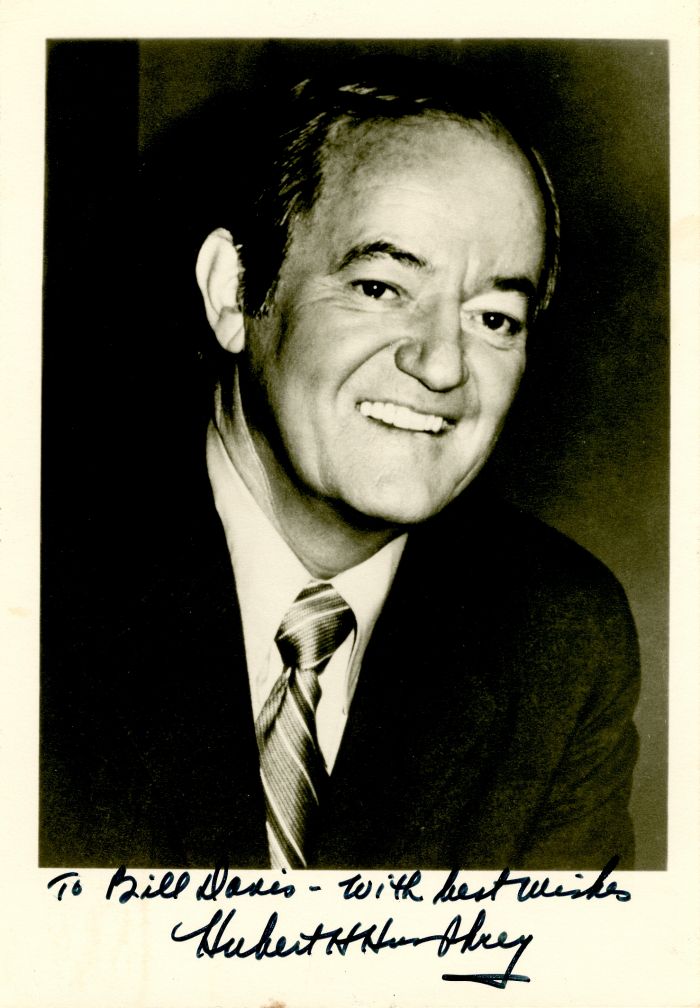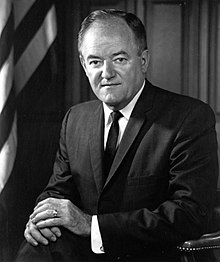Hubert Humphrey signed Photograph
Inv# AU1487 Photo
Hubert H. Humphrey signed photo inscribed to Bill Davis.

Hubert Horatio Humphrey Jr. (May 27, 1911 – January 13, 1978) was an American politician who served as the 38th vice president of the United States from 1965 to 1969. He twice served in the United States Senate, representing Minnesota from 1949 to 1964 and 1971 to 1978. He was the Democratic Party's nominee in the 1968 presidential election, losing to Republican nominee Richard Nixon.
Born in Wallace, South Dakota, Humphrey attended the University of Minnesota. At one point he helped run his father's pharmacy. He earned a master's degree from Louisiana State University and worked for the Works Progress Administration, the Minnesota war service program, and the War Manpower Commission. In 1943, he became a professor of political science at Macalester College and ran a failed campaign for mayor of Minneapolis. He helped found the Minnesota Democratic–Farmer–Labor Party (DFL) in 1944. In 1945, he won election as mayor of Minneapolis, serving until 1948 and co-founding the liberal anti-communist group Americans for Democratic Action in 1947. In 1948, he was elected to the U.S. Senate and successfully advocated for the inclusion of a proposal to end racial segregation in the 1948 Democratic National Convention's party platform.
Humphrey served three terms in the Senate from 1949 to 1964. He was the Senate Majority Whip from 1961 to 1964. During his tenure, he was the lead author of the Civil Rights Act of 1964, introduced the first initiative to create the Peace Corps, sponsored the clause of the McCarran Act that threatened concentration camps for "subversives", proposed making Communist Party membership a felony, and chaired the Select Committee on Disarmament. He unsuccessfully sought his party's presidential nomination in 1952 and 1960. After Lyndon B. Johnson acceded to the presidency, he chose Humphrey as his running mate, and the Democratic ticket was elected in the landslide 1964 election.
In March 1968, Johnson made his surprise announcement that he would not seek reelection, and Humphrey launched his campaign for the presidency. Loyal to the Johnson administration's policies on the Vietnam War, he saw opposition from many within his own party and avoided the primaries to focus on winning the delegates of non-primary states at the Democratic Convention. His delegate strategy succeeded in clinching the nomination, and he chose Senator Edmund Muskie as his running mate. In the general election, he nearly matched Nixon's tally in the popular vote but lost the electoral vote by a wide margin. After the defeat, he returned to the Senate until his death in 1978.










Ebay ID: labarre_galleries